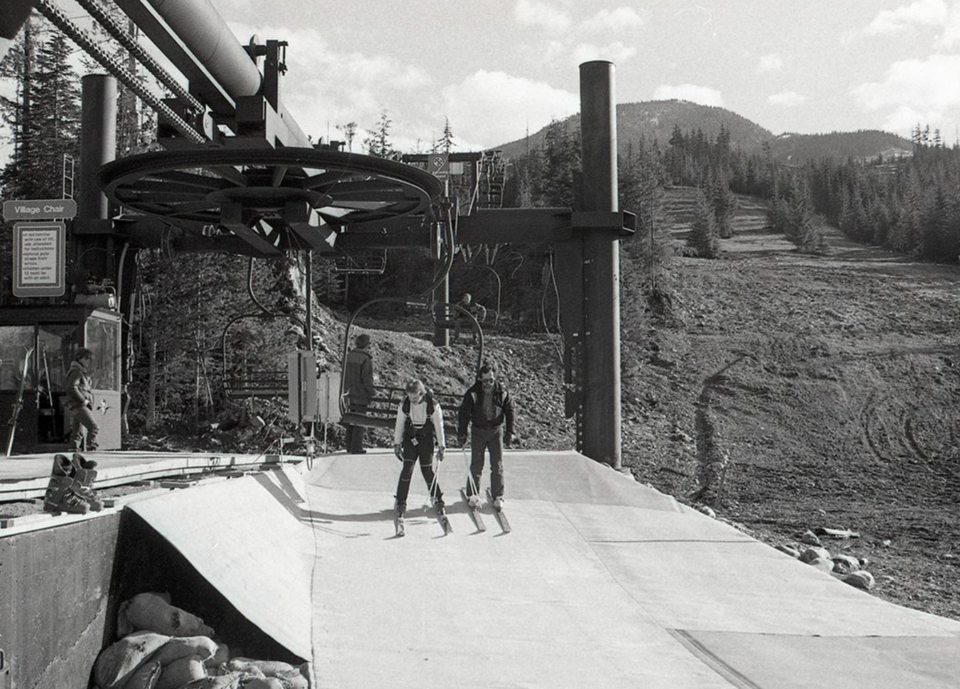This soggy winter season has prompted more than a few reminders of my first winter in Whistler.
It was 2014-15, and it was miserable.
The vibe in town was as dreary and depressing as the weather, and with no snow to speak of, the discourse on local online forums turned downright nasty.
I remember feeling ripped off. I might not last a whole year in this job, I reasoned, and now I won’t even get to see Whistler at its best. Oh, how wrong I was.
This June marks my 10-year anniversary with Pique, and in Whistler, and I am happy to say every winter following my first was significantly better. Not that my personal baseline—a winter with a 10-plus-year low snowfall total of 672 centimetres in the alpine—was a tough bar to clear.
Snow conditions being what they are this year, we’ve heard a lot of “worst winter ever” rhetoric in recent months.
But after a brutal start to the 2023-24 ski season, the snow is back in Whistler.
The mountains are their traditional winter white, lift lines are stretching as far as the eye can see, and the highway is once again filled bumper-to-bumper with traffic most mornings. Nature is healing.
It’s easy to let soggy seasons weigh you down (and we don’t mean your clothes), but it’s good to remember sometimes these exceedingly wet winters are not unprecedented.
Whistler’s average annual snowfall is of course on the decline due to climate change, and lower-snowfall years will become more common in the future.
But there’s nothing to indicate the great brown winter of 2023-24 is the de facto new normal, or that we won’t have the most epic of snow years on record come 2024-25.
For as bad as my first winter in Whistler was, it likely can’t hold a candle to the infamous winter of 1980-81, which garnered more than a few passing references from longtime locals as we waited for this year’s snow to arrive.
But was the winter of ’81 really as bad as everyone says? Being, as I was, barely a twinkle in my father’s eye at the time, I had to get a little dusty to find my answers.
Digging the old Whistler Question archives out of storage, I found what I was looking for on the very first page.
“Water, water everywhere!” was the headline of the Jan. 8, 1981 issue of the Question, with the subhed, “Heavy rains flood valley.”
The early, established theme plays out through the rest of the issue, with headlines like: “Cross-country race cancelled—no snow,” and, “Whistler valley nets bad press as weather turns foul.”
The Jan. 22 issue was no more optimistic, with the front-page headline, “Worst winter; no snow, no ice.”
Records as far back as 1935 (the first year records were kept) showed the 1980-81 season was “the grimmest ever recorded in terms of snow depths,” the Question said, noting 60-year valley resident Myrtle Philip could not recall another year in which the lakes were not frozen in January, or there was no snow in the valley.
The paper floated some “small encouragement” in the notion that previous “low-snow” years tended to come in five-year cycles: 1940 to 1945; 1960 to 1965; and 1976 to 1981.
“Some concern is now being expressed about the low snowpack on the mountains this year, which could result in water shortages and extreme fire conditions this summer,” it said.
Hey, that sounds kinda familiar!
The narrative was still going two months later, with the March 5, 1981 headline, “Where are the snows of yesteryear?”
“To our mixed delight and dismay, this season’s weather has not been typical,” the story read.
“A spokesman from the Vancouver Weather Office said this year we are not being influenced by the usual blocking high-pressure system which brings us cold air from the north and the accompanying Pacific storms which produce our snow. Instead, a low-pressure system off the coast has drawn warm air from California.”
It’s easy enough to imagine the discourse in the pubs that dirty, snow-deprived season of 1980-81. I suspect it bears a passing resemblance to the bitter discourse of today, and that of 2014-15.
There must have been at least some who wondered if it would ever snow properly again.
The following calendar year, 1982, saw 574 centimetres fall in the valley—the fifth-highest total ever recorded, behind 1999 (716 cm), 2006 (657 cm), 1990 (647) and 1994 (633).
And the year after my dismal first season, I got my proper introduction to mountain resort living when Whistler Blackcomb recorded 1,257 cm on its slopes—nearly double the season prior.
So, yes—Whistler will see longer, hotter, drier summers and lower snowfall, on average, in the future as the climate changes.
But 40 years from now, when some intrepid reporter goes looking for historical weather information in the dusty old Pique archives, there is every possibility the 2023-24 season mirrors that of 1980-81: a low-snowfall outlier.
Whistler’s worst winter? Only until the next one.




